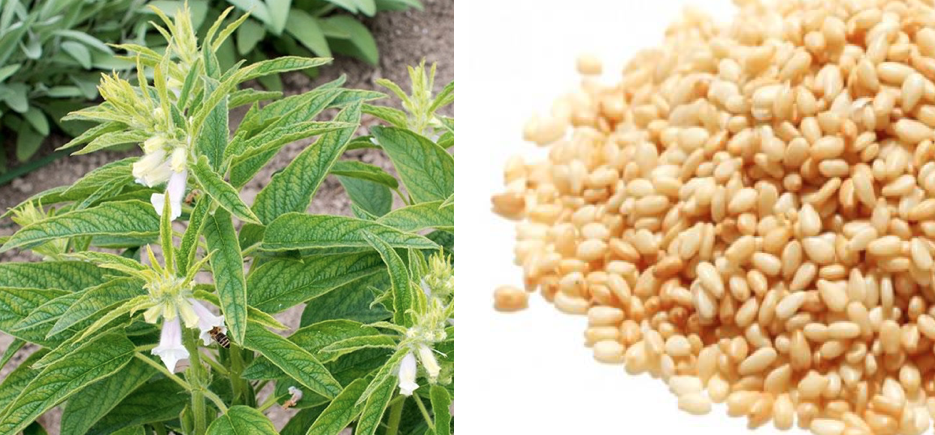Sesame
Sesame
Sesame is an annual flowering plant native to India and Africa and naturalized in other tropical regions. It is one of the oldest known seed crops with a history of cultivation spanning at least 3,000 years.
Sesame seed imparts a nutty flavor to Asian dishes and is the star ingredient in a condiment paste called tahini. Hulled sesame seed can also be added to salads, bean and vegetable dishes, breads and other baked goods
Add to salads, soups, dips, band and vegetable dishes, and sprinkle on top of breads, cookies and crackers.
Sesame is used in the food industry as a flavoring agent and thickener.
Sesame seeds are also rich sources of protein, vitamins, and antioxidants. People take sesame by mouth for Alzheimer’s disease, anemia, arthritis, heart disease prevention, cataracts, constipation, high cholesterol, infertility in men, menopause, osteoporosis, pain, stomach ulcers, stomach cancer, stroke, and weight loss.


